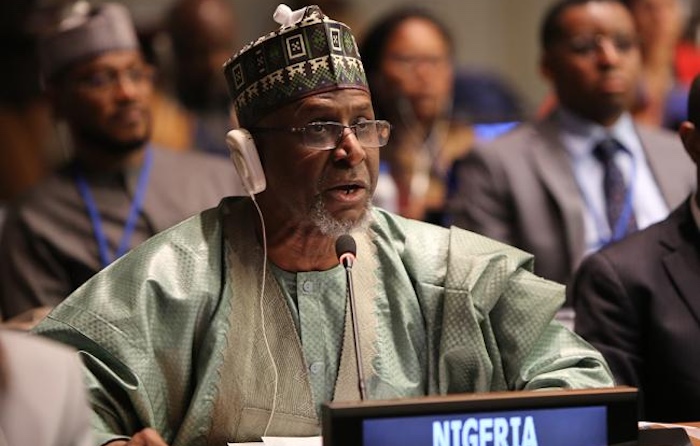
Nigeria is stepping up its fight against air pollution with a nationwide transition to low-sulphur fuels and the launch of fresh clean air initiatives, Minister of Environment, Balarabe Lawal, announced in Abuja during the commemoration of the third International Day of Clean Air for Blue Skies.
Lawal revealed that the Federal Ministry of Environment, in partnership with key agencies including NNPCL, Standards Organisation of Nigeria (SON), and the Department of Petroleum Resources (DPR), has completed a review of the Nigeria Industrial Standards (NIS) for petroleum products in line with AFRI IV standards. The revised standards, he said, will soon be enforced to pave the way for cleaner fuels nationwide.
On tackling vehicular emissions, the minister outlined measures under President Bola Ahmed Tinubu’s administration, including discouraging the importation of old vehicles, promoting local automobile manufacturing, and advancing the use of compressed natural gas (CNG), liquefied natural gas (LNG), and electric vehicles.
“The government supports efficient mass transport systems such as rail and waterways while prioritizing CNG for its low emissions and affordability, with gradual plans to transition into hydrogen and electric vehicles,” Lawal stated.
He further disclosed that the Federal Government has approved a Green Hydrogen Project in partnership with UNIDO and is also developing a framework for states to establish Vehicular Emissions Testing Centres in line with global standards.
As part of broader reforms, the ministry is driving a National Policy on Air Quality Management and a youth-led initiative, the #BreatheEasyNigeria Clean Air Programme, with support from the Pediatric Association of Nigeria, UNDP, and Bhustan Energy & Environmental Services. “We are raising awareness using credible data and engaging young people whose fragile lungs deserve protection,” he said.
To deepen grassroots advocacy, the Department of Pollution Control and Environmental Health signed an MoU with the Environmental Health Council of Nigeria to extend clean air campaigns to all 774 Local Government Areas.
Highlighting the urgency of the initiatives, Lawal warned that air pollution remains the world’s leading environmental health risk, causing more than seven million deaths annually — surpassing malaria and HIV/AIDS combined.
In Nigeria, he noted, bush burning, vehicular emissions, gas flaring, and venting are among the major contributors, fueling illnesses such as stroke, heart disease, lung cancer, and dementia.
Permanent Secretary of the ministry, Mahmud Kambari, described the National Clean Air Programme as a coordinated framework to safeguard public health, protect ecosystems, and align Nigeria with global climate and environmental targets.
“Together, we can turn the tide on this silent killer. Let us work collectively — and breathe easily,” Kambari said.



